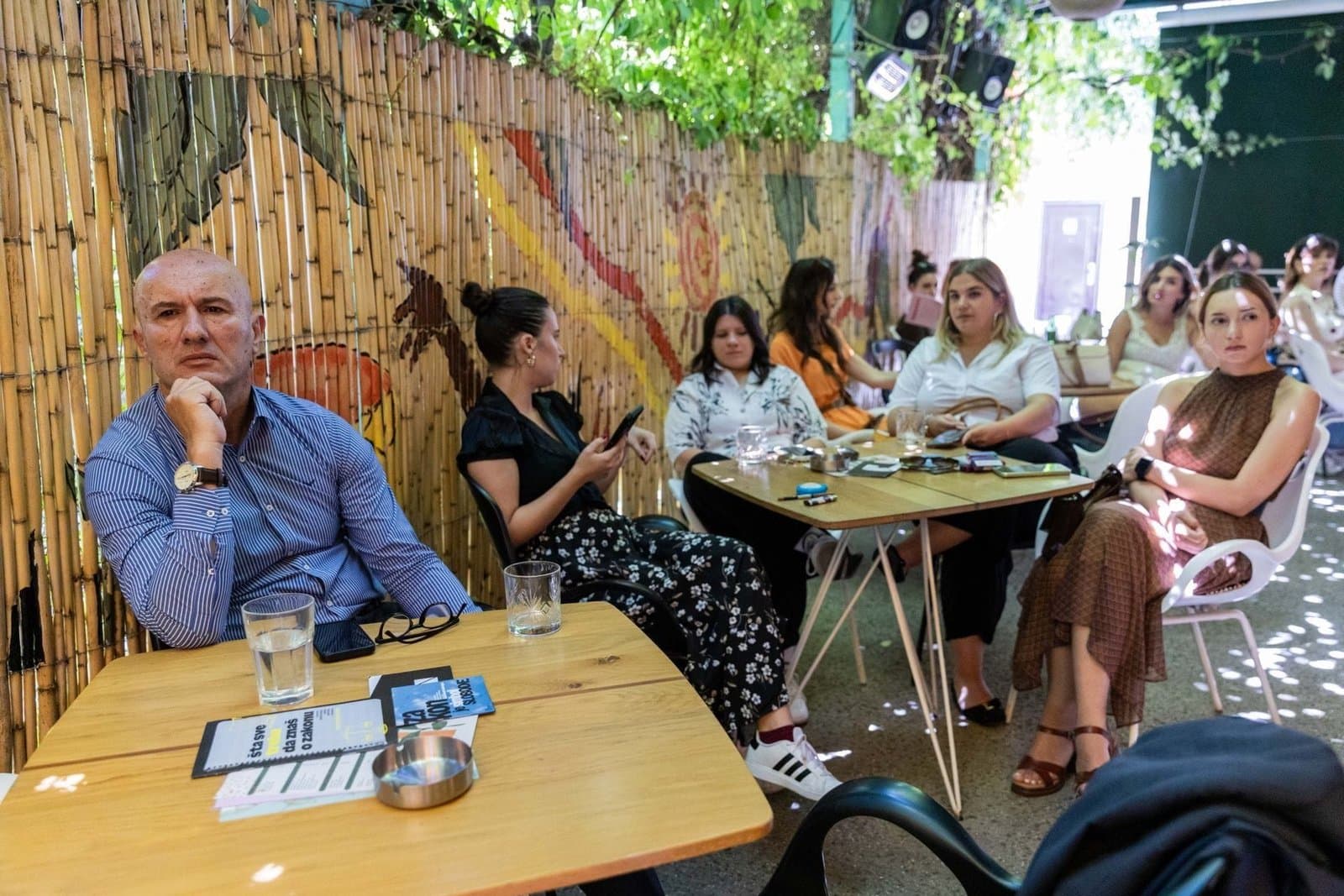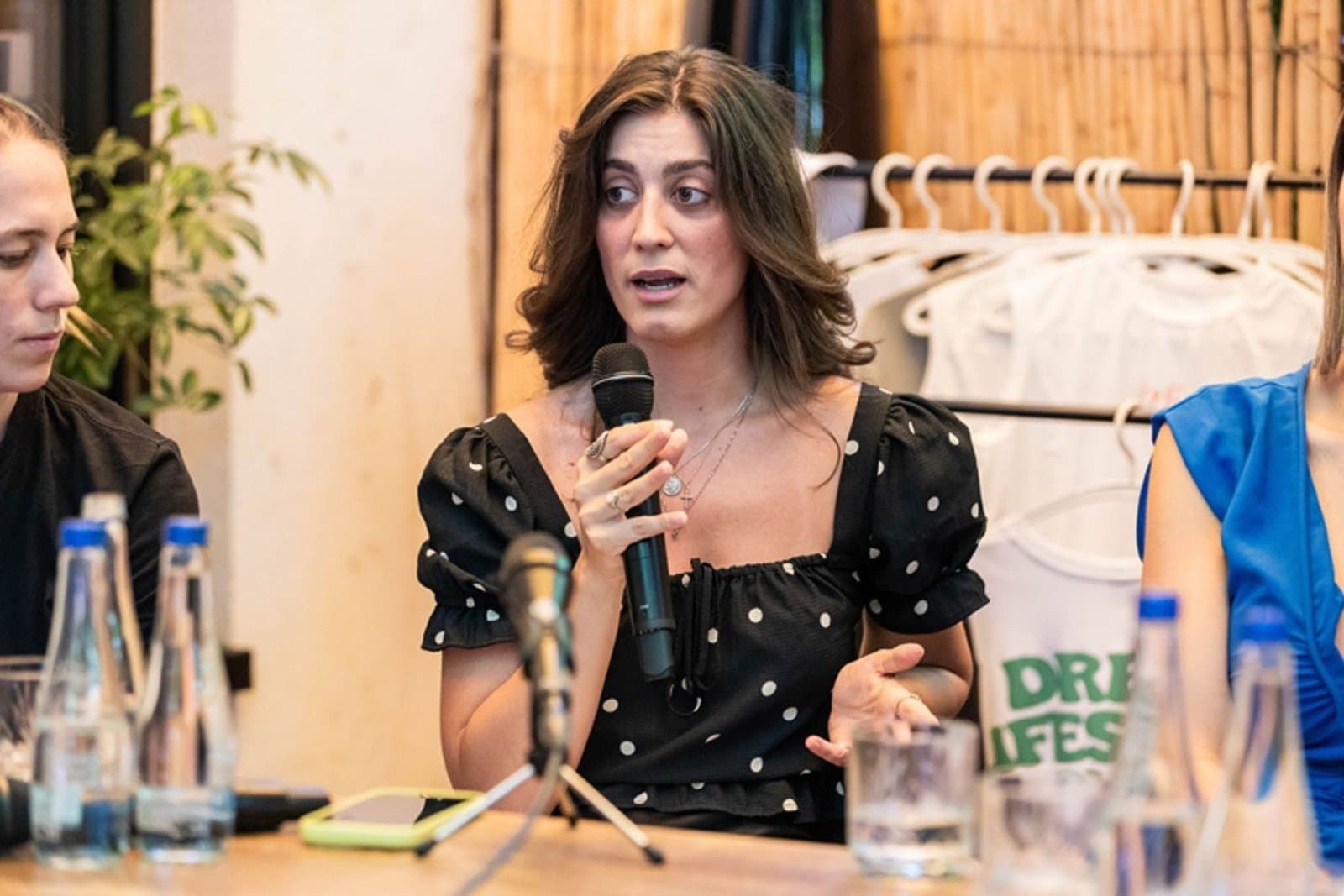The Law on Legal Gender Recognition Based on Self-Determination is ready for consideration at a Government session, but political maneuvering and the instrumentalization of human rights through political bargaining, instead of responsible action, clearly show where the adoption process has stalled.
This was the message conveyed at the panel discussion “Where Did It Stall? From Draft to Implementation: How Human Rights Remain Just Words on Paper?”, organized by Association Spectra.
Mirjana Pajković, Director General of the Directorate for the Promotion and Protection of Human Rights and Freedoms at the Ministry of Human and Minority Rights, said that the Law on Legal Gender Recognition Based on Self-Determination is fully ready for Government consideration, reminding that the adoption of this law is part of the Government’s Work Program, the EU accession process, and the reform agenda.
“The law is completely ready to go before the Government. It is encouraging that its adoption is planned in the Government’s work program and within the framework of the European integration process. We made an additional effort to ensure the law’s significance is clearly recognized in the state’s key strategic documents. If those documents have already been adopted by the Government, it logically follows that there is readiness to adopt the law that stems from them,” said Pajković.
She pointed out that human rights violations are often not explicit but occur in a more sophisticated way, through systemic marginalization and neglect, especially by consistently pushing them out of focus.
“The failure to prioritize human rights affects citizens’ self-respect and the very reputation of the state. What we are asking for from the Ministry is not privileges, but equal treatment and acknowledgment that human rights protection is just as important as any other reform process,” emphasized Pajković.
She reminded that the law is not about creating special rights but implementing existing constitutional norms and the state’s international obligations.
Pajković pointed out that the law achieves two reform goals – reducing the number of complaints to the Ombudsman and decreasing court proceedings.
“This directly fulfills elements of the reform agenda while also enabling citizens to realize their right to a dignified life,” she explained.
She emphasized that the Ministry secured all necessary approvals from relevant ministries, including those with different political affiliations.
“We received approvals from all relevant ministries, including those from different political parties. This process wasn’t easy because it involves a completely new law and new practice. We had to work closely with institutions to foster understanding. There is no rational explanation for someone who gave approval as a minister or ministry to now oppose the same law in the Government,” said Pajković.
She assessed that political bargaining over the law would be a mistake, as ministers do not act solely on behalf of their parties, but on behalf of the Government and citizens.
“Ministers do not vote in the Government just for their party or supporters. They are ministers for all citizens. The decisions they make must align with the official policies of the Government, not short-term political interests,” Pajković said.
She stated that although the Ministry does not have a dominant role within the executive, it has not given up on the law and will continue submitting the proposal to the Government every month until it is adopted.
“We are encouraged that the law has not been withdrawn. We believe that in one of the upcoming strategic moments, it will be placed on the agenda and supported. We will propose it every month because we still have that final, most extensive step left—to have the material included in a Government session,” said Pajković.
Staša Baštrica, Executive Director of LGBTIQ Association Queer Montenegro, said that the Law on Life Partnership of Same-Sex Persons was marginalized from the start, both within institutions and in political discourse.
“If we’re talking about priorities and non-priorities, then this law has been everything but a priority. From the very beginning, we faced clear opposition from institutions, Government representatives, and political actors,” Baštrica recalled.
According to her, responsibility for the law not being fully implemented lies on multiple levels.
“The first level of responsibility lies with the Government of Montenegro and the responsible ministries, which did not work on aligning sectoral laws with the Law on Life Partnership in a timely manner. As a result, LGBTIQ individuals and same-sex partners were denied many basic rights, clearly showing that their equality was never truly a priority,” emphasized Baštrica.
She added that political actors, although initially supportive, later showed no initiative to adjust accompanying laws and regulations.
“We had politicians who were ‘in favor’ at first, but then completely abandoned any concrete implementation efforts. Support was reduced to an initial photo-op without any real commitment,” Baštrica said.
She also pointed out the lack of institutional cooperation.
“We recently received an inquiry from one ministry asking which laws had been harmonized with the Law on Life Partnership, which clearly indicates a lack of interdepartmental mechanisms and coordination. Institutions show no interest, nor any awareness of the law’s importance,” said Baštrica.
She stressed that the law is essential for the dignity, equality, and safety of LGBTIQ people, and that this is not about “ticking boxes” but about the real lives of citizens.
“Our fight is not a seasonal campaign, not a photo opportunity. This is a fight for basic human rights, for dignity, for the safety of every lesbian, gay, bisexual, trans, intersex, and queer person in Montenegro,” Baštrica said.
She warned of the alarming fact that twelve years have passed since the first Pride, and five years since the adoption of the Life Partnership Law, yet meaningful progress is lacking.
“Instead of progress, we are witnessing regression, the rise of far-right narratives, and systemic neglect of the rights of this community. And when statistics show that fewer people would help an LGBTIQ person in need, it becomes clear that this is a social climate that politicians actively shape,” said Baštrica.
She told politicians that if they’re not doing their jobs in institutions, they shouldn’t stand beside them in the streets.
“Your presence is meaningless if you’re not working on laws, if you’re not securing budgets for support services, if you’re not aligning regulations. Don’t use us for political gain, because the community remembers who was there when it mattered and who only showed up when the cameras were on,” Baštrica concluded.
Dina Knežević, Senior Advisor at the Ombudsman’s Office, reminded that the Institution for the Protection of Human Rights and Freedoms of Montenegro submitted an initiative to Parliament in 2012 to adopt a Law on Same-Sex Partnerships, making it the first institution to formally stand with the LGBT community.
“We only got the law in 2020, after numerous objections. Although its adoption was an important step, its implementation in practice remains limited,” said Knežević.
According to her, the main problem lies in the lack of alignment between this law and other legal regulations, which prevents same-sex partners from exercising many guaranteed rights.
She added that the Ombudsman’s Institution participated in all working groups as an observer, contributing from the perspective of human rights and the case law of the European Court of Human Rights.
Knežević also recalled the institution’s contribution to trans rights, including a 2011 recommendation that led to amendments to the Health Insurance Law, after which the process of gender affirmation was partially covered by health insurance—initially up to 80 percent.
She particularly emphasized the importance of adopting the law on legal gender recognition, which was also recommended by the European Commission against Racism and Intolerance (ECRI) in 2023.
However, the growing influence of far-right narratives is causing delays in the adoption of this law, as well as the Law on the Protector of Human Rights, thereby directly undermining human rights, she said.
“A law in itself is not enough. Without education, without preparing the sociological landscape, real progress cannot be expected,” Knežević stressed.
She called for systemic education—from elementary and secondary schools to universities, as well as among civil servants and decision-makers—pointing out that many gender stereotypes stem from within institutions themselves.
Speaking on the issue of hormone shortages for trans women, Knežević stated that this is a “fundamental issue of respecting human rights” and emphasized that the number of affected individuals is no excuse for institutional negligence.
“Thanks to the Ombudsman’s intervention, the therapy is now available not only in the Clinical Center but also in health centers. Asking how many people are affected by hormone shortages is, to me, a disgrace. The strength of a society is reflected in how it treats its most vulnerable,” she said, adding that the institution will continue to act proactively and highlight all problems concerning the rights of LGBT people.
Danijela Nikić, activist from Association Spectra, emphasized that self-determination is not a right of only one marginalized group, but a right of all citizens of Montenegro, noting that this law does not seek special rights but equal rights for all.
She pointed to a significant legal gap in the existing system: while the change of personal name is legally permitted for everyone, the procedure for changing gender markers and identification numbers remains undefined and subject to discretionary interpretation by Ministry of Interior officials.
“In practice, this legal vacuum means the state requires trans people to undergo sterilization— invasive medical procedures involving the removal of reproductive organs. This is neither physically nor psychologically easy, and even less justified,” warned Nikić.
The consequences, she added, are daily and painful.
“When you pick up a package at the post office, you have to justify your body. At the border, you’re detained for hours. When you report violence—you’re mocked. This society clearly tells them: ‘You are not recognized by this system,’” she said.
She reminded that as far back as 2017, the European Court of Human Rights ruled that the requirement of sterilization constitutes a gross violation of human rights, calling on member states to urgently find legal gender recognition solutions without such demands.
“Montenegro is still among the few European countries that uphold this practice. Shouldn’t we aim to be better than that?” Nikić asked.
Commenting on the frequent argument from far-right groups that this law would “only benefit a few,” Nikić said that the rule of law either exists for everyone or it doesn’t exist at all.
“If this law improves the life of even one person, that is reason enough to adopt it,” she emphasized.
She reminded that Montenegro has already committed to adopting this law through the EU accession program, the Government’s work program, action plans, and international recommendations.
“The European Parliament made it clear: adopt the law — without delay. This is a key test for Montenegro: will we respect human rights only rhetorically, or through concrete legislative action? We don’t need another message from Brussels — we already have them all. Now it’s up to us to decide whether we’ll listen,” concluded Nikić.
Jelena Čolaković, Program Director of Juventas, pointed to ongoing political bargaining and a lack of genuine accountability when it comes to the treatment of human rights within Montenegro’s political and legislative system.
She also spoke about the dishonesty of political actors regarding EU obligations.
“We have a coordination mechanism that’s supposed to be the Government, but clearly we’re missing some heads. We’re missing heads—in the most numerous Government in Montenegro’s history,” Čolaković said.
She also noted the difference in language used in EU integration action plans.
“For Chapter 23 it says ‘adopt the law,’ and for Chapter 24 ‘prepare the law.’ If all laws go through the same procedure, why the difference? If the same parties make up both the Government and Parliament, how is it that something passes in Government but not in Parliament?” Čolaković asked.
She said that the Ministry of Human and Minority Rights is not the “beating heart” of this Government, although it should be.
“If it’s not a priority, then who are we working for? For real estate projects on Ada Bojana?” she added.
She also addressed the lack of political will to adopt the Law on Legal Gender Recognition Based on Self-Determination, recalling that its adoption is scheduled for the third quarter of 2025.
“July, August, September. Tell me, who even works during that time? Does that mean it’s not being taken seriously again?” said Čolaković.
She expressed skepticism, saying that the core approach to human rights remains unchanged—“political bargaining, not responsibility.”
Čolaković believes that individual support from MPs is important, but not sufficient.
“We need collective responsibility from political parties. Without it, the rights of citizens remain hostages of political deals. And without remorse,” she concluded.
Miodrag Laković, a Member of Parliament of Montenegro, emphasized that laws concerning the rights of LGBT people are emancipatory.
“If these laws improve the life of even one person in the country, we should support their adoption. Speaking for myself, I will always support them,” said Laković.
In addition to Laković, MP Zoja Bojanić Lalović also attended the panel discussion, even though the invitation had been extended individually to all MPs.
The panel discussion was held within the project “Right to Self-Determination – Right of All,” implemented by Association Spectra with the support of the Ministry for Human and Minority Rights.













